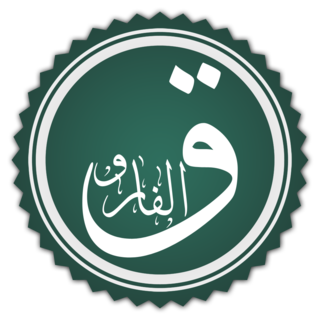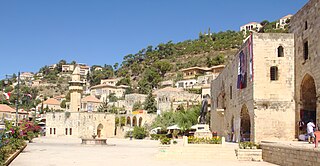Turk or Turks may refer to:

Warda Al-Jazairia was an Algerian singer. She was well known for her Egyptian Arabic songs and music. Her name was sometimes shortened to just Warda or as "The Algerian rose" in the Arab world.
Saʽid, also spelled Saʽeid, Said, Saïd, Sid, Saeed, Saed, Saied, Sayeed or Sayid, is a male Arabic given name which means "blessed, good luck, joy" or "happy, patient". The name stems from the Arabic verb sa‘ada.
ʻAbd al-Ḥamīd, also spelled as Abdulhamid, Abd-ul Hamid, and Abd ol-Hamid, is a Muslim male given name, and in modern usage, surname. It is built from the Arabic words ʻabd and al-Ḥamīd, one of the names of God in the Qur'an, which gave rise to the Muslim theophoric names. It means "servant of the All-laudable".
Rami or Ramy may refer to:
Hadji is a variant spelling of Hajji, a title and prefix that is awarded to a person who has successfully completed the Hajj (pilgrimage) to Mecca. It may also refer to:
Yahya, also spelled Yehya, is an Arabic male given name. It is an Arabic form of the given name John, originally Aramaic Yohanan, i.e. primarily John the Baptist, who is known as Yahya ibn Zakariyya in Islam, and is considered a prophet in Islam. For this reason, Yahya is a comparatively common name in the Muslim world. The related Biblical name of Jehiah has the Arabic form Yaḥiyyā [يَحِيَّى] Error: {{Lang}}: invalid parameter: |3= (help)., having the same Arabic consonantal text as the name Yahya does.
Amr is an Arabic male name.
Boustani is a Levantine surname. Variations of the name, due to transliteration, include: Boustani as well as Boustany, Bisteni, Bistany, Bostany, Bustani,Besteni, Bestani and Bestene. The name, a nisba, derives from the Arabic word for garden and is thought to date back to at least the 15th Century.

Farooq is a common Arabic given and family name. Al-Fārūq literally means "the one who distinguishes between right and wrong."
The surname Howayek, Hoyek,Hawayek, Hayek and its variants is an Arabic surname, common among the Maronite Catholics of Lebanon. The majority of the members live in three Lebanese towns Bdadoun, Hsarat and Helta; the remainder is scattered among other smaller towns and in the diaspora.
Majali is a prominent Jordanian family name that has been based in the town of Al Karak since at least the 1770s. Family members were in Al Karak for long periods of time and served both the Ottoman Turks and the Hashemite family that has ruled Jordan since 1921. There are more than 3000 individuals with Majali last name in Jordan.
al-Rumi, or its Persian variant of simply Rumi, is a nisba denoting a person from or related to the historical region(s) specified by the name Rûm. It may refer to:
Turk is a surname. Notable people with the surname include:
Ghazali is an international surname and given name with different spellings. It may refer to:
al-Tunisi, in Northern Africa usually spelled el-Tunsi, is an Arabic surname. Notable people with this name include:
Niqula Nicolas Yusuf al-Turk (1763–1828) was a scholar, historian, and poet at the court of Amir Bashir Shihab II. He was born in Dayr al-Qamar. He accompanied Napoleon's expedition in Egypt and wrote an account of it, which was translated in French by Desgranges as Histoire de l'expédition des Français en Égypte. Gaston Wiet has published his memoirs as Chronique d'Égypte, 1798–1804. Al-Turk died, blind, in Dayr al-Qamar.
Fakhoury or variant Fakhouri or variants Al-Fakhoury, Al-Fakhouri, El-Fakhoury, or El-Fakhouri is an Arabic surname originating in Lebanon, with many people bearing the surname being Palestinian or Jordanian.

Warda Nicolas Yusuf Al-Turk was a Lebanese poet who was born and raised in the Chouf District located in Mount Lebanon, during the reign of the Ottoman Empire. She was considered as a "revivalist" in her time, along with other remarkable women from the region, because she was able to revive old classical poetry. Through the influence of her poet father Nicolas Al-Turk who was a court poet for the historic Amir Bashir al-Shihabi II, Warda al-Turk developed a passion for writing and thus devoted most of her work to empowering women.
Warda is a feminine given name and a surname. Notable people with the name are as follows:


